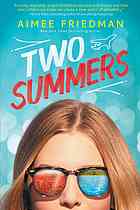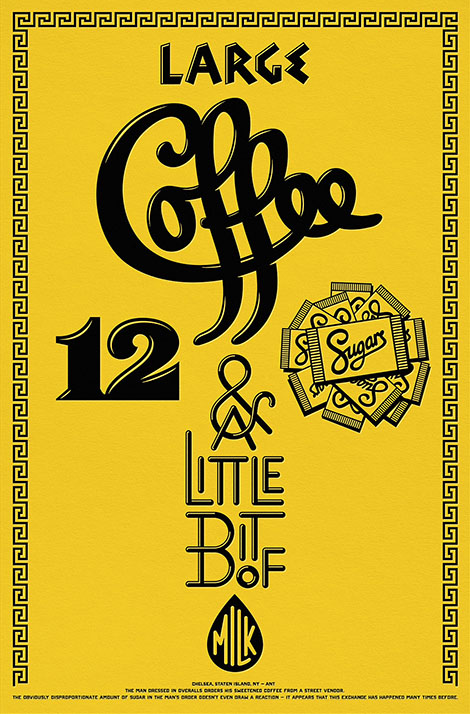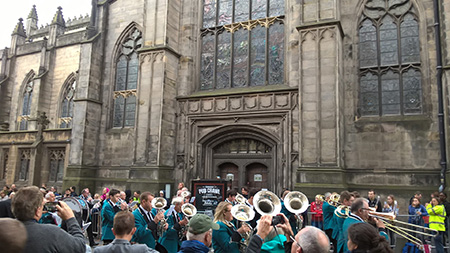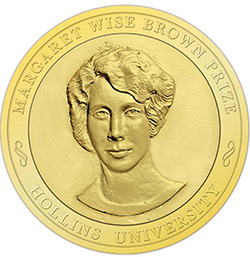Convite ao Encontro
Joel Rufino dos Santos, foi para nós um exemplo de intelectual plenamente inserido no ritmo de seu tempo, fosse nos temerosos anos da Ditadura, fosse na nossa pueril Democracia, tantas vezes abortada antes de atingir seu pleno desenvolvimento. Independente disso, seu legado permanece e avança para além do presente. Há de se estudar e dialogar com seus livros, literatura, ensinamentos.
É de Joel, professor e amigo, que solicito ajuda para começar esse texto que, como verá, o levará até o ponto onde possa aceitar um convite, que sei, lhe será de grande agrado.
Ensinou-me o mestre, em sua fala gentil, sobre como construímos no Brasil determinado tipo de narrativa, proposta a partir de interesses de determinado grupo, e de como isso calou por muito tempo as vozes, a diversidade de vozes, que compõe as narrativas brasileiras.
A produção cultural, da dita "alta cultura" tem lugar e dono. Os "escritores" brasileiros são em sua maioria homens brancos, de classe média, moradores de áreas "nobres" de grandes centros urbanos. É assim nas redações do telejornais, nos editoriais das revistas mais ricas, nos palcos do teatro, telas de cinema, nos tribunais, cartuns, quadrinhos e, enfim, na literatura, desde que os primeiros folhetins nos chegaram trazidos d'além mar para deleite daqueles que podiam ler.
E como registrar suas próprias histórias, narrativas que conduzem a vida, se não se sabe ler?
É na literatura entretanto, que a figura do pobre, invisibilizada na política e na economia, ganha protagonismo. O pobre é ali figurado, ganha contornos, cores, comportamentos.
Mas, o que é o "pobre" afinal?
É o iletrado? O marginalizado dos meios de produção? Qual a narrativa que construiu em nossas cabeças o que é "pobre"? Pobre, nas narrativas oficiais, é aqueles que deseja mas não pode, é fator de desestruturação da sociedade em direta oposição à rica elite estruturadora. Por definição, os pobres são a classe perigosa.
Assim, coube aos escritores dos folhetins e seus herdeiros, reproduzir modelos sobre o que é o pobre com ideias convenientes à dominação social. Cindindo também nas letras a sociedade em classes que se opõem, uma oprimindo, outra oprimida.
Darcy Ribeiro definiu que há de fato dois tipos de intelectuais: o contente e o irado.
O primeiro, gosta das coisas como estão. Aliena-se da dor daqueles cujo desejo é suprimido, aceita os privilégios de poucos, ganha sua vida assim. Não irá chiar a não ser que lhe doa nos próprios privilégios de porta voz do status quo.
O segundo, lamenta o sufocar das demandas do povo, se sensibiliza com as dores e sofreres de seus irmãos. Muitas vezes se engajará, colocando à risco a própria paz de espírito, quando não a saúde, para fazer sua parte, naquilo que crê, ser o caminho para uma sociedade mais generosa e justa.
Pode ser frustrante contrariar seu papel de propagador da ideologia dominante, mas também pode ser purificante.
Não são muitos, ainda hoje, intelectuais que fujam ao seu papel de extratificadores de classes. Que rompam com o paternalismo intelectual de uma classe sobre outra. Mas de quando em vez, sairá do mundo dos pobres, um porta voz que coloca por terra as barreiras das elites. Foi assim com Patativa do Assaré. Não se dobrou às normas "de cima", pelo contrário, fez as suas e as impôs pela força de suas narrativas.
Daí ficamos a definir o que é um "intelectual".
Intelectual é aquele que, sendo de determinado grupo social, fala de seu grupo para a sociedade. Ao mesmo tempo, ele estabelece para seu grupo determinadas normas de conduta, tendo também uma função pedagógica: representa externamente seu grupo, e educa internamente o mesmo.
A este, Gramsky chamou de "intelectual orgânico".
Uma das dificuldades para a abertura de espaço para os intelectuais do povo, é que até bem pouco tempo, os meios de produção e divulgação de arte eram caros, detidos nas mãos de poucos. Assim, a elite dona dos jornais, gravadoras, escolas, reproduzia para o consumo geral a sua própria narrativa hegemônica.
Os intelectuais que emergem dos círculos populares, agora tem melhor acesso aos meios. Seja por internet, ou pelas políticas públicas do último periodo político, nas rádios comunitárias, agora vemos e ouvimos um proliferar de vozes, centenas milhares, que na verdade sempre estiveram por lá.
Nunca em toda a cidade do Rio de Janeiro se ouviu tantos saraus, rodas de samba, oficinas literárias, feiras de trocas de zines. Da rua à rede, e desta de volta a rua, o que vemos é uma ocupação das vias, por parte daqueles que tem muito a expressar e quebrar na narrativa hegemônica.
Quando nos prendemos a uma só história, destruímos a possibilidade de conhecimento do outro. Caímos na armadilha do "pobre" do folhetim, do "outro" onde não nos reconhecemos, simplesmente por que nunca tivemos acesso a nenhuma outra narrativa ao seu respeito a não ser aquela única, alienante, que nos torna opositores entre nós.
Saber das demais histórias de alguém, é traze-lo para perto de si.
Não é por acaso que uma das formas de dominar uma população é impedindo o seu acesso a outras narrativas que não a imposta pela classe dominante.
Assim todos somos postos a ver a mesma novela, o mesmo telejornal, o mesmo ensino de banco de escola do pensamento único, sem o qual não se lançaria povos em guerras, ou se faria possível matar a um irmão.
A violência se alimenta da alienação, em todos os seus níveis. Desumanizar, negar direitos iguais, é a forma como se prepara o campo para violar seu semelhante.
Foi seguido a um periodo de extrema alienação de valores humanitários, que se produziu a Declaração Universal dos Direitos Humanos (10 de dezembro de 1948). Nela se incluem entre seus trinta artigos, aqueles que protegem expressamente o direito à diversidade de narrativas, seja como autores, propagadores ou fruidores. A saber:
Artigo 7
Todos são iguais perante a lei e tem direito, sem qualquer distinção, a igual proteção da lei. Todos tem direito a igual proteção contra qualquer discriminação que viole a presente Declaração e contra qualquer incitamento a tal discriminação.
Não se pode diminuir uma pessoa, através de discursos preconceituosos, negando sua condição humana. Entretanto, vemos em discursos políticos, religiosos e até mesmo em projetos educativos, palavras ou propostas que violam esse direito essencial.
Artigo 19
Toda pessoa tem direito à liberdade de opinião e expressão; este direito inclui a liberdade de, sem interferências, ter opiniões e de procurar, receber e transmitir informações e ideias por quaisquer meios, independentemente de fronteiras.
Enquanto não tivermos acesso amplo e democrático dos meios de comunicação, este direito permanecer ainda incompleto. Com a Internet avançou-se, mas ainda não chegamos ao um ponto justo. Ataques ao Marco Zero da Internet, monopólios midiáticos, a pauperização de aparelhos públicos culturais e educacionais são no momento as maiores faltas.
Artigo 26
I) Toda pessoa tem direito à instrução. A instrução será gratuita, pelo menos nos graus elementares e fundamentais. A instrução elementar será obrigatória. A instrução técnica
profissional será acessível a todos, bem como a instrução superior, esta baseada no mérito.
II) A instrução será orientada no sentido do pleno desenvolvimento da personalidade humana e do fortalecimento do respeito pelos direitos humanos e pelas liberdades fundamentais. A instrução promoverá a compreensão, a tolerância e amizade entre todas as nações e grupos raciais ou religiosos, e coadjuvará as atividades das Nações Unidas em prol da manutenção da paz.
III) Os pais têm prioridade de direito na escolha do gênero de instrução que será ministrada a seus filhos.
Entretanto, ainda não vimos no país um real esforço pela democratização do ensino. Seguimos enfrentando políticas de sucateamento, com grande interferencia de grupos privados que visam tornar o direito humano à educação em mercadoria para lucro de poucos em detrimento da necessidade de muitos.
Artigo 27
I) Toda pessoa tem o direito de participar livremente da vida cultural da comunidade, de fruir as artes e de participar do progresso científico e de fruir de seus benefícios.
II) Toda pessoa tem direito à proteção dos interesses morais e materiais decorrentes de qualquer produção científica, literária ou artística da qual seja autor.
Aqui falamos de direitos autorais, estes que devem atender tanto ao público quanto ao criador da obra artística. Quando interagimos com as artes, é preciso ter em mente suas funções sociais. Elas devem se fazer acessível, têm valor de registro de sua época, é direito do público saber a quem creditar a obra e é direito de quem a cria ter seus valores morais e materiais salvaguardados.
Repare que nenhum destes parágrafos especifica o que é cultura, ou o que é melhor ou pior em termos de artes e manifestações culturais. O que temos como "cultura" é uma construção de determinada época, região, e tem intenção ideológica nela. Ou seja: a cultura não é um conceito absoluto. Aliás, devemos nos acostumar a questionar sempre o que nos é dado como dogma, como determinado, como ideia única, como única história.
É preciso aprender a desconstruir narrativas que nos chegam cristalizadas, para se aproximar.
Nos definimos em oposição ao outro. Assim a mulher se define em oposição ao homem – que hegemoniza a cultura a partir de seu ponto de vista. E o negro se define em face ao branco, que da mesma forma dominou as narrativas. O negro é contado à partir do centro branco, masculino, heterossexual e rico.
De sua ilha de privilégio, não cabe ao homem, branco, hetero, rico, romper com as estruturas opressoras de narrativas. Ele está cego em sua posição, sob holofotes que o perseguem desde o dia em que nasceu, quiçá até antes. Caberá àquelas e aqueles que tiveram seu protagonismo suprimido, libertar o mundo da narrativa hegemônica, do discurso alienante. Simplesmente porque, apenas elas e eles, tem o que é necessário: que são suas próprias narrativas. São as histórias das periferias, de quem lutou pelo direito de viver, sobreviver, da poesia das quebradas, da música marginal, dos ranchos, dos toques dos atabaques, das vielas, das celas, dos cárceres, dos abrigos, dos hospícios, dos campos, dos cantos dos amordaçados de um país onde cada cabeça pode propor um novo universo.
Nós, humanos, somos construídos pelas narrativas das quais dispomos. Com elas nos definimos. A religião é uma narrativa, a forma como lidamos com nossos familiares também, nossas crenças no que é bom de se comer, falar, são histórias que "colaram" em nós. Sociedades são construídas através dos pontos em comum das narrativas de seus membros. Mesmo a história oficial de um povo não é mais do que uma narrativa única, incompleta, alienante do que foi o real daquelas pessoas que nos precederam. Não à toa, Joel Rufino escreveu seus tomos onde resgatou as narrativas de nossa história do Brasil contada por classes nunca antes ouvidas, e não à toa, teve sua obra destruída e foi cassado pelo governo militar da Ditadura, que mais que tudo, só pode dominar suprimindo violentamente todas as narrativas que não a sua.
E de onde vêm essas narrativas?
Vem de nossos pais, da vó que contava a história antes de dormir, dos "causos" contados à mesa de jantar ou na roda de viola, da fofoca das vizinhas, da novela das oito, do âncora engravatado do jornal nacional, dos filmes blockbusters estrangeiros monopolizando as telas dos cinemas… Elas nos definem, e não é fácil resistir à elas, especialmente quando se é uma criança. Narrativas nos conformam ou revoltam, dependendo de quem a conta. Podem domar os desejos e manter um país inteiro sujeito à condições péssimas para seu povo, porque fizeram-no crer de quem tem de ser assim, mas também podem despertar consciências, uma crítica lúcida sobre o porquê do estados das coisas que nos oprimem.
Uma das narrativas mais perigosas que podem nos imprimir, é a de que somos inimigos. Pense em alguém, qualquer pessoa, que de alguma forma lhe inspira raiva, ou repulsa. Pense em como se formou esse sentimento em você. Foi alguém que lhe ensinou ou algo que leu? Foi esta pessoa que lhe fez ou falou algo rude? De qualquer forma, o quanto sabe a respeito desta pessoa que justifique a encarar como um inimigo e não uma igual? Em outras palavras, quais foram as narrativas sobre ela que teve acesso?
Alienar-se do outro é negar suas outras narrativas. Conhecê-las é se aproximar, humanizar. Mesmo o pior dos inimigos, tem em si um conto de afeto, de ternura. Compreender é abrir possibilidade de se conviver, de respeito mútuo.
Portanto, se pretendemos uma sociedade pacífica, justa e harmoniosa, é urgente que se inicie tornando possível que todos possam contar suas próprias histórias, e o que é mais importante de tudo: serem ouvidos.
Meu convite portanto é esse: vamos nos organizar de formas a que isso aconteça aqui dentro do Novo Degase?
Thais Linhares – Diretora Administrativa Adjunta do Instituto de Defensores de Direitos Humanos – DDH, vice-presidenta da Associação de Escritores e Ilustradores de Literatura Infantojuvenil – AEILIJ.
By Cynthia Leitich Smith
for Cynsations
Boston Globe-Hornbook Awards for Excellence in Children's Literature: "Winners are selected in three categories: Picture Book, Fiction and Poetry, and Nonfiction. Two Honor Books may be named in each category."
The National Book Awards Longlist: Young People's Literature from The New Yorker. Peek: "...a novel in verse about a twelve-year-old soccer nut, an illustrated adventure story that draws on Chinese folklore, a work of nonfiction about a woman who survived the atomic bomb dropped by the U.S. on Nagasaki, a surreal love story involving rumored witches, and a graphic novel about the civil-rights movement co-written by a sitting U.S. congressman."
Lee Bennett Hopkins Poetry Award: "This year’s winner is Enchanted Air: Two Cultures, Two Wings: A Memoir written by Margarita Engle, published by Atheneum...."
Intellectual Freedom Award from the National Council of Teachers of English. Peek: "NCTE honors Matt de la Peña for his courage in standing up for intellectual freedom with the NCTE National Intellectual Freedom Award, given for de la Peña’s efforts to fight censorship not only through his words but also through his actions."
 |
| Willa Award Finalist |
Willa Award Winner and Finalists from Women Writing the West. Peek: "Chosen by professional librarians, historians and university affiliated educators, the winning authors and their books will be honored at the 22st Annual WWW Conference in Santa Fe, New Mexico on Oct. to Oct. 16..."
Carter G. Woodson Book Award and Honor Winners: "NCSS established the Carter G. Woodson Book Awards for the most distinguished books appropriate for young readers that depict ethnicity in the United States."
Lammy Award from Lambda Literary. Peek: "Exciting news for Alex Gino and all of us who want this beautiful and important story of a transgender child in 4th grade to get into the hands of everyone who needs it."
NCTE Charlotte Huck Award for Outstanding Fiction for Children: "...established in 2014 to promote and recognize excellence in the writing of fiction for children. This award recognizes fiction that has the potential to transform children’s lives by inviting compassion, imagination, and wonder."
Parents Choice Book Awards: "Parents' Choice Foundation, established in 1978 as a 501c3, is the nation’s oldest nonprofit guide to quality children’s media and toys."
Finalists Announced for the 2016 Canadian Children's Book Centre Awards"The winners of the English-language awards will be announced at an invitation-only gala event at The Carlu in Toronto on November 17, 2016. The winners of the Prix TD de littérature canadienne pour l’enfance et la jeunesse will be announced at an invitation-only gala event at Le Windsor in Montreal on November 1, 2016. Overall, $135,000 in prize monies will be awarded."
 |
| International Latino Award (Chap Book) |
2016 International Latino Book Awards: "...now the largest Latino cultural Awards in the USA and with the 257 finalists this year, it has honored the greatness of 2,171 authors and publishers over the past two decades. These books are a great reflection that books by and about Latinos are in high demand. In 2016 Latinos will purchase over $675 million in books in English and Spanish."
Writers' League of Texas Book Award Winners, Finalists and Discovery Prize Winners: "With over 1,200 members statewide and growing, the Writers’ League of Texas is a vibrant community that serves to educate and uplift Texas writers, whatever stage they may be at in their writing careers. In addition, the WLT offers valuable service to communities across the state with free programming in libraries and local schools."
Cynsational NotesSubmissions Guidelines Walter Dean Myers Book Award for YA Lit from We Need Diverse Books. Peek: "A submission must be written by a diverse author and the submission must be a diverse work. If a work has co-authors, at least one of the authors must be diverse..." Deadline: Nov. 1.
Lee & Low New Visions Award: "Manuscripts should address the needs of children and teens of color by providing stories with which they can identify and relate, and which promote a greater understanding of one another. Themes relating to LGBTQ+ topics or disabilities may also be included." Deadline: Oct. 31.


















 Further reading on teaching literacy in kindergarten
Further reading on teaching literacy in kindergarten








 Judges, Submission Guidelines Announced for the 2017 Margaret Wise Brown Prize in Children’s Literature
Judges, Submission Guidelines Announced for the 2017 Margaret Wise Brown Prize in Children’s Literature
[…] Building Classroom Community in Kindergarten […]
[…] Building Classroom Community in Kindergarten […]
[…] Building Classroom Community in Kindergarten […]
[…] long run it’s always worth the time and effort. Lee and Low Books just shared a free unit on “Building Classroom Community Unit for Kindergarten.” Based on eight different read-aloud books, the lessons provide in-depth literacy engagement […]